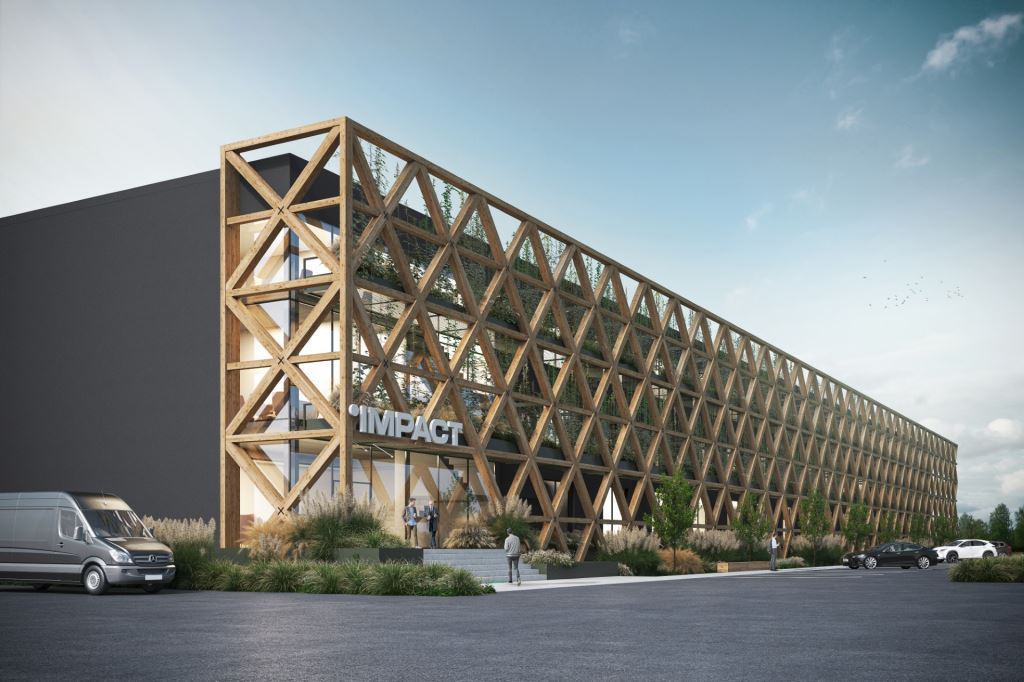
150 million kilometers driven on Polish GigafactoryX batteries
Custom-designed batteries meeting specific customer expectations, the new generations of globally recognized UVES POWER LTO GEN 3.0, UVES ENERGY, and UVES LFP products, along with a proprietary battery management system (BMS) and the unveiling of the new GigafactoryX battery factory are some of the highlights of Impact’s presence at this year’s BusWorld 2023. At the largest European bus trade show held in Brussels, the Polish manufacturer will also showcase its cutting-edge heavy-duty battery production line with a capacity of 1.2GWh, with the first battery systems set to be manufactured in the second quarter of 2024. By 2027, production capacity at the new GigafactoryX will be increased to 4GWh annually. Production will rely on a European supply chain, thanks in part to the agreements with LG and Freyr.
LFP technologies are a solution wherever cobalt-free systems are required
“In the heart of Europe, we are presenting the most advanced battery systems, which have been used by the world’s leading bus manufacturers for many years, such as Solaris Bus&Coach and ADL. The experience gained during years of collaboration with market leaders, the thousands of battery systems and BMS units delivered, is what sets us apart from the competition and allows us to set new trends in the market,” says Ireneusz Kazimierski, CEO of Impact Clean Power Technology S.A.

Customer-centricity has always been ingrained in Impact’s DNA. The engineering team designs batteries based on specific partner requirements, using modern cell technologies in line with their expectations. UVES lithium-ion battery systems are built using NMC, LTO, and LFP cells. NMC cells are characterized by high energy density and competitive pricing compared to other similar batteries. They require longer charging times, which, in turn, provide a long range and the possibility of all-day vehicle operation.
Charging, which takes several hours, typically occurs in depots during nighttime hours. On the other hand, modules based on LTO technology can be charged very quickly and frequently, for example, during short stops at terminals. Charging takes only 8 to 15 minutes, enabling such vehicles to be used practically 24 hours a day, seven days a week. LTO batteries can have smaller capacities and take up less space in the vehicle. Batteries based on LFP technologies are a solution wherever cobalt-free systems are required.
Impact batteries have covered more than 150 million kilometers
Impact’s batteries are also used in hydrogen buses. The company is developing its own fuel cell technologies based on hydrogen in collaboration with ITOCHU Plantech Inc. and Toshiba Energy Systems and Solutions Corp. These systems will have twice the lifespan of any other solution on the market.
“Since the end of September 2023, all of Impact’s production has been taking place at the new GigafactoryX. The establishment of this technologically advanced facility will provide a strong impetus for the development of electromobility and renewable energy sources in Poland and around the world. GigafactoryX is also another step in the production of energy and the transformation of public transportation and industry, which will consistently reduce CO2 emissions. So far, electric buses powered by Impact batteries have covered more than 150 million kilometers,” says Ireneusz Kazimierski.
Busworld is one of the most important and largest international trade fairs dedicated to the bus and transport industry. This event brings together vehicle manufacturers, equipment and technology suppliers related to public transportation, and other key players in the industry from around the world. Busworld trade fairs were first organized in 1971 in the Belgian city of Kortrijk.

